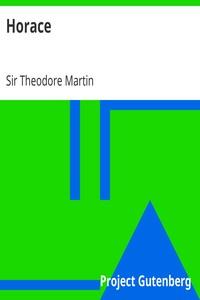Read this ebook for free! No credit card needed, absolutely nothing to pay.
Words: 50456 in 9 pages
This is an ebook sharing website. You can read the uploaded ebooks for free here. No credit cards needed, nothing to pay. If you want to own a digital copy of the ebook, or want to read offline with your favorite ebook-reader, then you can choose to buy and download the ebook.


: My Boyhood by Burroughs John - Burroughs John 1837-1921 Childhood and youth; Naturalists New York (State) Biography
WAITING
Serene, I fold my hands and wait, Nor care for wind, nor tide, nor sea; I rave no more 'gainst Time or Fate, For lo! my own shall come to me.
I stay my haste, I make delays, For what avails this eager pace? I stand amid the eternal ways, And what is mine shall know my face.
Asleep, awake, by night or day, The friends I seek are seeking me; No wind can drive my bark astray, Nor change the tide of destiny.
What matter if I stand alone? I wait with joy the coming years; My heart shall reap where it hath sown, And garner up its fruit of tears.
The waters know their own, and draw The brook that springs in yonder heights; So flows the good with equal law Unto the soul of pure delights.
The stars come nightly to the sky; The tidal wave comes to the sea; Nor time, nor space, nor deep, nor high, Can keep my own away from me.
MY BOYHOOD, BY JOHN BURROUGHS
You ask me to give you some account of my life--how it was with me, and now in my seventy-sixth year I find myself in the mood to do so. You know enough about me to know that it will not be an exciting narrative or of any great historical value. It is mainly the life of a country man and a rather obscure man of letters, lived in eventful times indeed, but largely lived apart from the men and events that have given character to the last three quarters of a century. Like tens of thousands of others, I have been a spectator of, rather than a participator in, the activities--political, commercial, sociological, scientific--of the times in which I have lived. My life, like your own, has been along the by-paths rather than along the great public highways. I have known but few great men and have played no part in any great public events--not even in the Civil War which I lived through and in which my duty plainly called me to take part. I am a man who recoils from noise and strife, even from fair competition, and who likes to see his days "linked each to each" by some quiet, congenial occupation.
The first seventeen years of my life were spent on the farm where I was born ; the next ten years I was a teacher in rural district schools ; then I was for ten years a government clerk in Washington ; then in the summer of 1873, while a national bank examiner and bank receiver, I purchased the small fruit farm on the Hudson where you were brought up and where I have since lived, cultivating the land for marketable fruit and the fields and woods for nature literature, as you well know. I have gotten out of my footpaths a few times and traversed some of the great highways of travel--have been twice to Europe, going only as far as Paris --the first time sent to London by the Government with three other men to convey ,000,000 of bonds to be refunded; the second time going with my family on my own account. I was a member of the Harriman expedition to Alaska in the summer of 1899, going as far as Plover Bay on the extreme N. E. part of Siberia. I was the companion of President Roosevelt on a trip to Yellowstone Park in the spring of 1903. In the winter and spring of 1909 I went to California with two women friends and extended the journey to the Hawaiian Islands, returning home in June. In 1911 I again crossed the continent to California. I have camped and tramped in Maine and in Canada, and have spent part of a winter in Bermuda and in Jamaica. This is an outline of my travels. I have known but few great men. I met Carlyle in the company of Moncure Conway in London in November, 1871. I met Emerson three times--in 1863 at West Point; in 1871 in Baltimore and Washington, where I heard him lecture; and at the Holmes birthday breakfast in Boston in 1879. I knew Walt Whitman intimately from 1863 until his death in 1892. I have met Lowell and Whittier, but not Longfellow or Bryant; I have seen Lincoln, Grant, Sherman, Early, Sumner, Garfield, Cleveland, and other notable men of those days. I heard Tyndall deliver his course of lectures on Light in Washington in 1870 or '71, but missed seeing Huxley during his visit here. I dined with the Rossettis in London in 1871, but was not impressed by them nor they by me. I met Matthew Arnold in New York and heard his lecture on Emerson. My books are, in a way, a record of my life--that part of it that came to flower and fruit in my mind. You could reconstruct my days pretty well from those volumes. A writer who gleans his literary harvest in the fields and woods reaps mainly where he has sown himself. He is a husbandman whose crop springs from the seed of his own heart.
My life has been a fortunate one; I was born under a lucky star. It seems as if both wind and tide had favoured me. I have suffered no great losses, or defeats, or illness, or accidents, and have undergone no great struggles or privations; I have had no grouch, I have not wanted the earth. I am pessimistic by night, but by day I am a confirmed optimist, and it is the days that have stamped my life. I have found this planet a good corner of the universe to live in and I am not in a hurry to exchange it for any other. I hope the joy of living may be as keen with you, my dear boy, as it has been with me and that you may have life on as easy terms as I have. With this foreword I will begin the record in more detail.
I have spoken of my good luck. It began in my being born on a farm, of parents in the prime of their days, and in humble circumstances. I deem it good luck, too, that my birth fell in April, a month in which so many other things find it good to begin life. Father probably tapped the sugar bush about this time or a little earlier; the bluebird and the robin and song sparrow may have arrived that very day. New calves were bleating in the barn and young lambs under the shed. There were earth-stained snow drifts on the hillside, and along the stone walls and through the forests that covered the mountains the coat of snow showed unbroken. The fields were generally bare and the frost was leaving the ground. The stress of winter was over and the warmth of spring began to be felt in the air. I had come into a household of five children, two girls and three boys, the oldest ten years and the youngest two. One had died in infancy, making me the seventh child. Mother was twenty-nine and father thirty-five, a medium-sized, freckled, red-haired man, showing very plainly the Celtic or Welsh strain in his blood, as did mother, who was a Kelly and of Irish extraction on the paternal side. I had come into a family of neither wealth nor poverty as those things were looked upon in those days, but a family dedicated to hard work winter and summer in paying for and improving a large farm, in a country of wide open valleys and long, broad-backed hills and gentle flowing mountain lines; very old geologically, but only one generation from the stump in the history of the settlement. Indeed, the stumps lingered in many of the fields late into my boyhood, and one of my tasks in the dry mid-spring weather was to burn these stumps--an occupation I always enjoyed because the adventure of it made play of the work. The climate was severe in winter, the mercury often dropping to 30? below, though we then had no thermometer to measure it, and the summers, at an altitude of two thousand feet, cool and salubrious. The soil was fairly good, though encumbered with the laminated rock and stones of the Catskill formation, which the old ice sheet had broken and shouldered and transported about. About every five or six acres had loose stones and rock enough to put a rock-bottomed wall around it and still leave enough in and on the soil to worry the ploughman and the mower. All the farms in that section reposing in the valleys and bending up and over the broad-backed hills are checker-boards of stone walls, and the right-angled fields, in their many colours of green and brown and yellow and red, give a striking map-like appearance to the landscape. Good crops of grain, such as rye, oats, buckwheat, and yellow corn, are grown, but grass is the most natural product. It is a grazing country and the dairy cow thrives there, and her products are the chief source of the incomes of the farms.
Free books android app tbrJar TBR JAR Read Free books online gutenberg
More posts by @FreeBooks

: The Shopkeeper Turned Gentleman by Moli Re Wall Charles Heron Translator - Comedies; French drama; Middle class France Drama; France Social life and customs 17th century Drama








